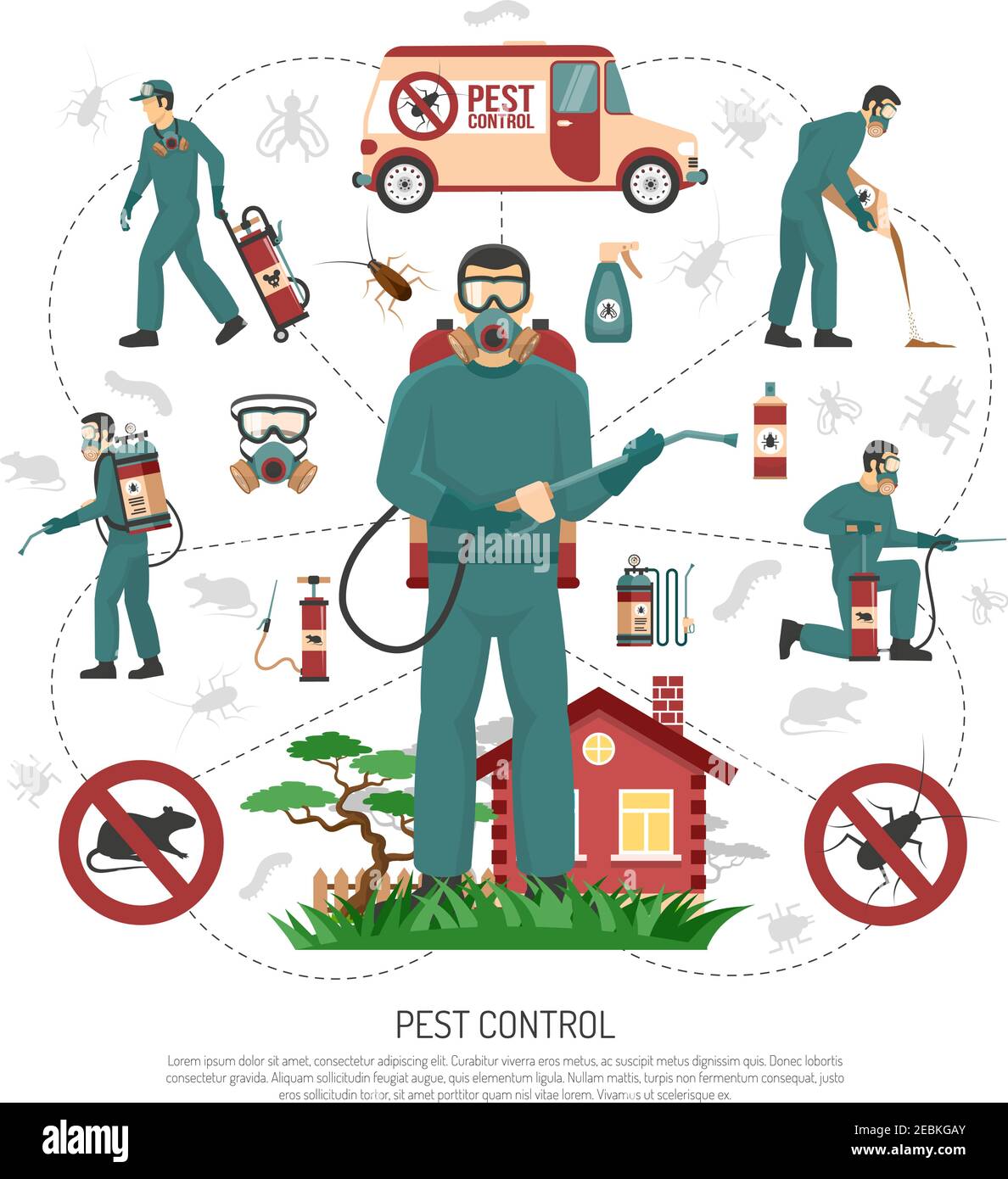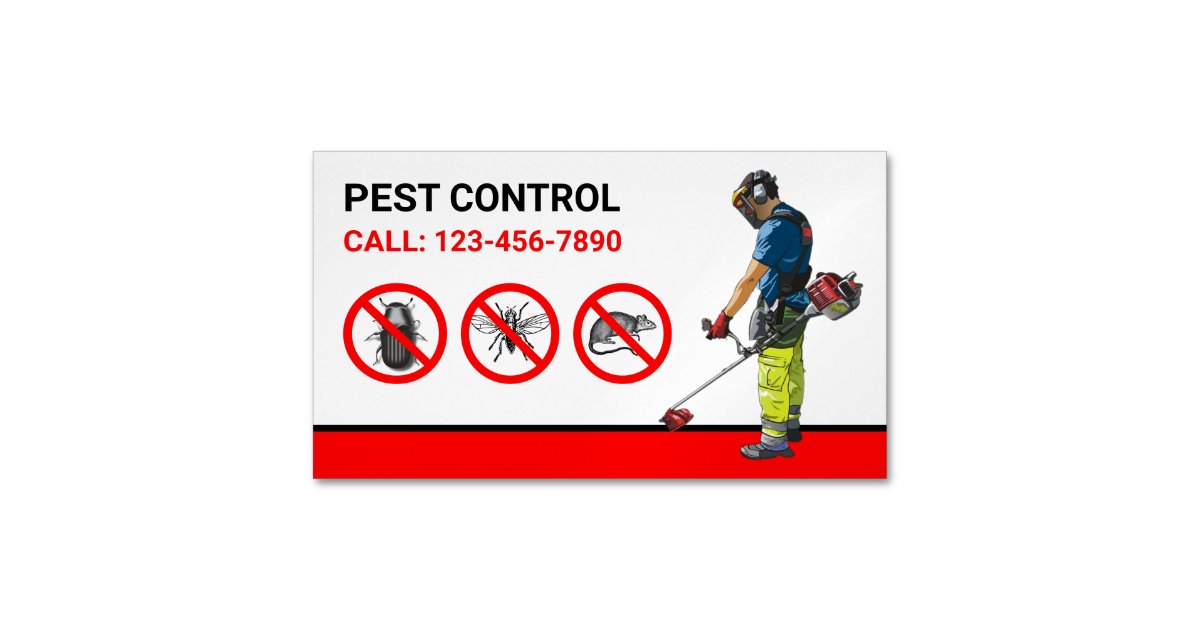Trusted Pest Control Clovis: Securing Your Building
Trusted Pest Control Clovis: Securing Your Building
Blog Article
Recognizing the Various Strategies to Parasite Control: A Comprehensive Overview

Natural Insect Control Methods
Utilizing green techniques such as buddy growing and biological parasite control is vital for properly managing insects in farming settings. Friend planting includes growing various plants in proximity to prevent insects, improve nutrient uptake, and boost overall plant health and wellness. Planting marigolds alongside tomatoes can help ward off nematodes. Likewise, intercropping maize with legumes can interfere with the reproduction patterns of parasites like corn borers.
Organic bug control entails introducing all-natural killers or microorganisms to manage pest populaces. Ladybugs, as an example, prey on aphids, regulating their numbers without the need for chemical pesticides. One more instance is making use of Bacillus thuringiensis (Bt), a germs that targets specific insect pests while being harmless to human beings, pets, and beneficial pests.
These environmentally friendly methods not just lower the reliance on synthetic chemicals yet likewise assist maintain biodiversity and dirt health. By including natural insect control methods right into agricultural techniques, farmers can accomplish lasting bug administration while minimizing adverse effects on the setting.

Chemical Parasite Control Solutions
In enhancement to all-natural parasite control techniques, the use of chemical insect control solutions plays a substantial duty in properly handling pest populations in agricultural environments. Chemical insect control options are created to target certain parasites that might cause substantial damage to plants. These remedies often include synthetic chemicals that are made to get rid of parasites quickly and efficiently.
One of the vital advantages of chemical parasite control remedies is their efficiency in managing parasite problems on a large scale. Farmers can apply these solutions making use of different techniques such as splashing, fumigation, or seed therapy to secure their plants from unsafe bugs, weeds, and diseases. Additionally, chemical pest control services are reasonably easy to use and can give rapid outcomes, helping farmers secure their returns and decrease financial losses.
Nevertheless, it is important to utilize chemical pest control solutions judiciously to decrease possible unfavorable influence on the setting, non-target microorganisms, and human health and wellness. Appropriate application strategies, adherence to safety and security guidelines, and regular surveillance are crucial to ensure the responsible use chemical parasite control options in farming techniques.
Biological Insect Control Approaches
Organic pest control approaches leverage all-natural killers or microorganisms to manage pest populaces in agricultural settings properly. One typical organic control method is the introduction of all-natural opponents, such as ladybugs or parasitic wasps, to target specific pests.
Another organic control technique involves making use of try this site virus like fungi, infections, or germs to infect and eliminate bugs. In general, biological parasite control methods provide a sustainable and targeted remedy to pest management in farming.
Integrated Insect Management (IPM)
Integrated Bug Management (IPM) is an extensive strategy that integrates numerous insect control approaches to efficiently manage and decrease pest populations in farming systems. IPM why not try here concentrates on lasting avoidance of bugs through a combination of organic, cultural, physical, and chemical control techniques. By integrating these various methods, IPM aims to minimize reliance on chemical pesticides, minimize environmental effect, and promote lasting pest monitoring practices.
One key facet of IPM is using organic controls such as natural predators, parasites, and microorganisms to manage pest populations. This technique uses the power of nature to maintain a balance between insects and their natural opponents without creating injury to the setting.
Additionally, IPM involves cultural practices like crop environment, turning, and sanitation control to produce negative problems for pests and disrupt their life cycles. Physical controls such as catches, obstacles, and composts are likewise used to stop pest invasions.
Mechanical and Physical Insect Control Techniques
Utilizing non-chemical approaches, such as physical and mechanical bug control strategies, is an important aspect of extensive insect management strategies, building upon the structure of Integrated Bug Administration's holistic approach. Mechanical parasite control entails making use of physical barriers or traps to avoid pests from accessing and harming crops or frameworks. This technique can include strategies like mounting screens on windows, making use of row covers in agriculture, or employing sticky catches to catch pests.
Physical insect control methods, on the various other hand, concentrate on straight eliminating parasites with physical methods. For example, using warmth treatments to get rid of bed insects or vacuuming up parasites like spiders or ants can be effective means to manage problems without using chemicals. By integrating these physical and mechanical insect control strategies right into an Integrated Pest Administration strategy, individuals and experts can reduce dependence on chemicals while still successfully minimizing and managing pest populations damages.
Final Thought

In enhancement to natural pest control approaches, the use of chemical insect control solutions plays a substantial function in effectively taking care of pest populations in agricultural settings.One of the essential visit this site benefits of chemical bug control solutions is their performance in managing pest invasions on a large range.Integrated Insect Monitoring (IPM) is a detailed approach that incorporates various parasite control techniques to properly manage and decrease pest populations in farming systems.Utilizing non-chemical methods, such as physical and mechanical insect control strategies, is a vital aspect of detailed pest administration strategies, developing upon the foundation of Integrated Bug Management's all natural approach. By integrating these mechanical and physical pest control methods right into an Integrated Insect Monitoring plan, professionals and individuals can lower dependence on pesticides while still successfully lessening and taking care of pest populations damage.
Report this page